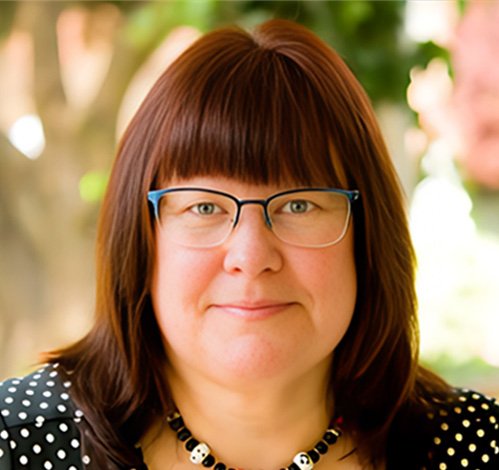|
|
Last Modified on May 17, 2025
Obtaining full custody rights for a child in California presents significant emotional challenges, intricate legal hurdles, and high tensions between parents. California courts do not show bias towards mothers or fathers in custody decisions, but can award full custody to either if it serves the child’s best interests. Still, many women ask the same important question about how to get full custody of a child as a mother in California.
Mothers who seek full custody must understand the court’s custody evaluation criteria, learn how to present their case properly, and follow the necessary procedures. Full custody can look like sole legal custody, sole physical custody, or both, which typically requires proof that the other parent cannot offer a safe and stable environment or is unfit.
What Full Custody Means in California
In California, the term “full custody” means one parent receives either or both sole legal custody and sole physical custody. Sole legal custody allows one parent to make fundamental choices regarding their child’s schooling, medical care, and overall welfare without any input from the other parent.
Under sole physical custody arrangements, the child spends most of their time living with one parent. The court can award child visitation rights to the other parent even when a mother has full custody unless evidence shows visitation would harm the child.
Mothers seeking full custody must demonstrate compelling reasons why full custody would benefit the child’s safety, stability, or well-being, since California courts prefer joint custody arrangements when they serve the child’s best interests.
Grounds for Full Custody
To get full custody, a mother must present clear evidence that the other parent is unfit or that shared custody would place the child at risk. The goal isn’t to “win” custody but to protect the child’s best interests. A well-documented pattern of unsafe or unstable parenting is often key to persuading the court. Valid reasons for seeking full custody may include:
- Domestic violence
- Substance abuse
- Child neglect
- Untreated mental health issues
- Abandonment
Supporting evidence can include the following:
- Police reports
- Medical documentation
- Witness testimony
- Proof of missed visitations or unreliability
How to File for Full Custody in California
The Judicial Council of California’s 2024 Court Statistics Report listed 20,736 parentage case filings across California in the 2022–23 fiscal year. To start the process, you must file a Request for Order (Form FL-300) at your local family court. California mandates mediating child custody matters between both parents before judicial intervention unless certain exceptions exist, like domestic violence.
Family Court Services manages the mediation process in counties including San Mateo and Santa Clara. The mediation process requires parents to work towards creating a parenting agreement. When parents fail to reach an agreement after multiple mediation attempts, the case advances to a custody hearing. California Family Code § 3011 directs custody decisions by focusing on children’s safety and their physical and emotional growth.
The ability to understand and successfully navigate these steps has a significant effect on the custody results for mothers.
Strengthening Your Case: Tips for Mothers
When mothers desire full custody, they need to demonstrate their own stability and maintain a child-centered approach and cooperative attitude. The judicial system prefers parents who promote healthy relationships between their child and the other parent unless this relationship puts the child’s safety at risk. You should maintain documentation, such as texts, emails, and other correspondence, of all contentious interactions and problems involving the other parent.
A strong case for full custody requires documentation of parenting duties and involvement with the child’s school activities, doctor appointments, and daily schedule. During legal proceedings, you should display mature behavior and language because judges evaluate parents based on their ability and readiness to work together in co-parenting.
Demonstrating a consistent routine, maintaining a safe home, and actively participating in your child’s life can enhance your case for obtaining sole legal or physical custody. For personalized assistance, you should consult with an experienced attorney from Law Offices of Tracy Duell-Cazes, located on The Alameda in San Jose, CA, only a short drive from the Children’s Discovery Museum of San Jose.
FAQs
Q: Can a Mother Automatically Get Full Custody in California?
A: No, in California, the courts do not demonstrate an automatic preference for mothers when making custody decisions. Family court judges make custody decisions based on what benefits the child instead of considering which parent is the mother or father.
To receive full custody, mothers need to demonstrate that full custody is essential for their child’s safety or developmental stability by providing proof of the other parent’s inability to share parenting duties effectively.
Q: What Qualifies a Parent as Unfit for Custody in California?
A: In California, behavior from a parent that threatens a child’s well-being can lead to a determination of parental unfitness. This may involve domestic violence, substance abuse, neglectful actions, untreated mental illness, or maintaining an unsafe living situation for the child. The court will only grant full custody to the other parent after receiving documented proof of harmful behavior. The parent who asks for sole custody must provide said proof.
Q: Do Mothers Need a Lawyer to Get Full Custody?
A: A lawyer is not a legal requirement, but their representation can substantially improve your case outcome. The resolution of custody cases requires navigating complicated procedures, attending court hearings, and presenting compelling evidence. A mother benefits from an experienced family law attorney who can guide her through legal procedures while preparing strong documentation and advocating for full custody under California law.
Q: Can the Other Parent Still Get Visitation if I Have Full Custody?
A: Parents maintain visitation rights even with full custody unless the court decides that visitation endangers the child. A mother who holds sole legal and physical custody still allows the other parent scheduled visitation rights.
Should the parent present any danger, the court retains the authority to prohibit visits altogether or mandate visitation under supervision. The court determines the specific terms based on what it believes will provide the most safety for the child.
Contact a California Child Custody Lawyer
Pursuing full custody as a mother in California requires preparation, clarity, and a deep understanding of family law. At Law Offices of Tracy Duell-Cazes, we bring over 36 years of experience helping parents protect their rights and their children’s well-being. If you’re ready to take the next step, contact us today to speak with a skilled California child custody attorney.





